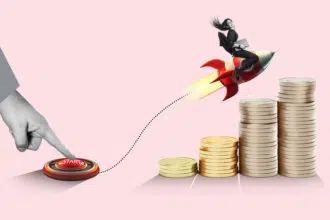Ever wondered why your credit card application gets rejected even when you feel everything is perfect? 💳❌
Banks assess several factors before issuing credit cards. From credit scores to job stability, even small issues can lead to rejection. 🚨
Learn how to increase your chances of approval by maintaining a good credit score, providing accurate income proof, and applying for the right cards. 💡
Read our complete guide to understand the 5 key reasons for rejection and apply smarter for your next credit card.
1️⃣ Low Credit Score
Your credit score plays a crucial role in your application’s approval. If you’ve ever defaulted on a loan or missed payments on previous credit cards, it negatively impacts your credit score.
- Late EMI payments lead to a bad credit score. 📉
- Banks prioritize applicants with a strong repayment history.
👉 Tip: Always pay EMIs and bills on time to maintain a healthy credit score.
2️⃣ Low Salary or Income Proof Issues 💼
Each bank sets a minimum income requirement for issuing different types of credit cards. If your monthly or annual income doesn’t meet the bank’s criteria, your application may be rejected.
- Banks often ask for ITR (Income Tax Return) for self-employed applicants or Form 16/Salary Slips for salaried individuals.
- Low income may indicate lower repayment capacity.
👉 Tip: Check the income criteria for the card you’re applying for and ensure you have valid income documents.
3️⃣ Applying for High Credit Limits 🏦💰
Many people aim for credit cards with high limits right from the start, but this strategy can backfire.
- Banks prefer applicants with an established credit history before offering higher limits.
- For beginners, it’s better to start with basic or no-frills credit cards with lower limits.
👉 Tip: Build a good credit history with a beginner-friendly card before applying for premium cards.
4️⃣ Multiple Applications at Once 🔄🚫
Applying for credit cards with multiple banks simultaneously can hurt your chances of approval.
- Banks and NBFCs check your credit history for every application.
- Multiple applications give the impression of financial instability.
- Reapplying at the same bank without addressing previous rejection reasons can also lead to a denial.
👉 Tip: Avoid applying for multiple cards at once. Understand rejection reasons before reapplying.
5️⃣ Negative Profile or Area Blacklist 📍❌
Banks and financial institutions have specific eligibility criteria, including job stability, company reputation, and location.
- Frequent job changes may indicate career instability, making banks hesitant to approve your card.
- Some areas or profiles might be blacklisted based on the bank’s risk assessment policies.
👉 Tip: Maintain job stability and apply for cards suited to your profile and location.
Final Words of Advice 💡
Before applying for a credit card, carefully analyze its benefits and your eligibility. Follow these tips to increase your approval chances:
- Maintain a good credit score by paying bills on time.
- Ensure your income meets the card’s criteria.
- Start with a basic credit card if you’re a first-time applicant.
- Avoid frequent applications across banks.
- Be aware of your profile and area eligibility.
Always remember, a credit card is borrowed money (debt) that you must repay on time. Use it wisely to avoid financial trouble. 💳✅





